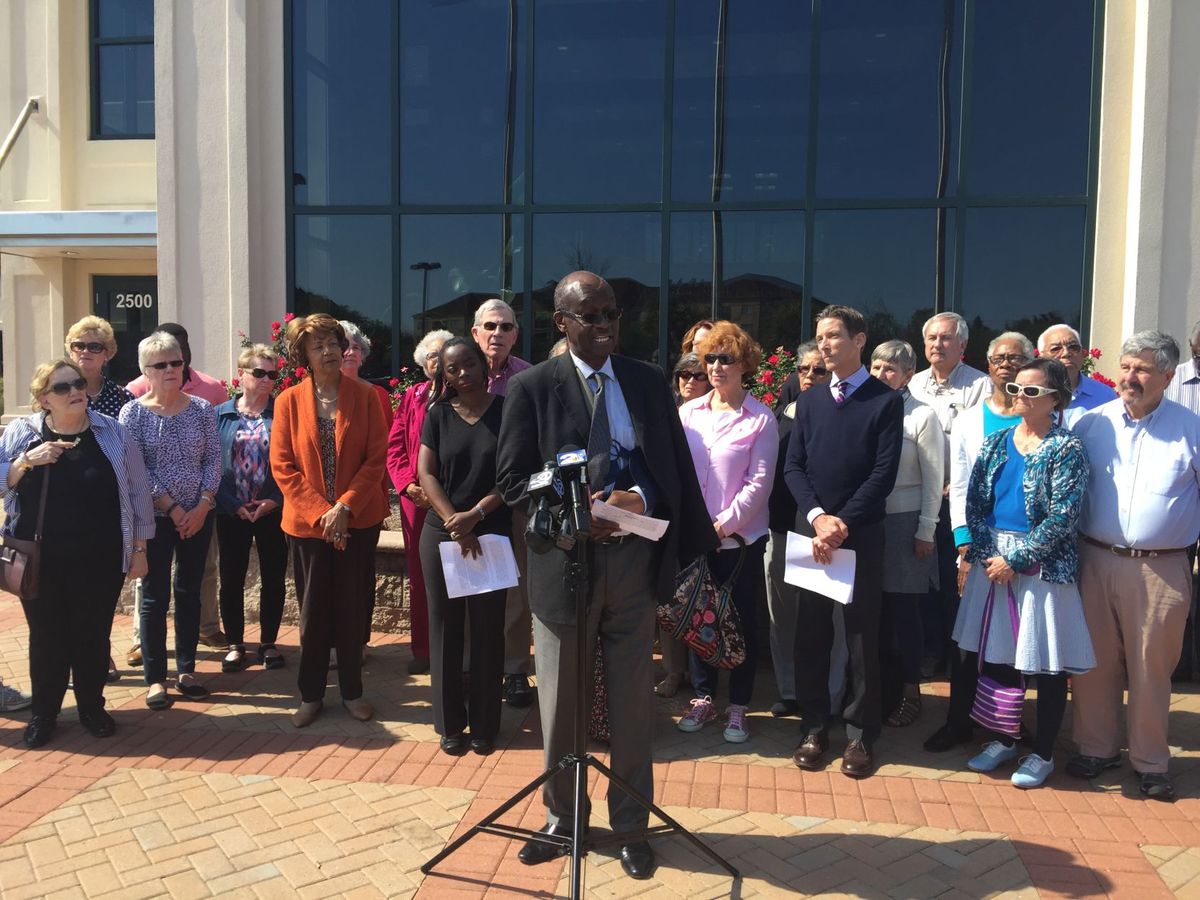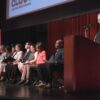June 18, 2017. The Post and Courier.
What should Charleston do about citizens’ repeated allegations of racial bias by police? Mayor Tecklenburg seemed untroubled by such reports in his May 30th Post & Courier column celebrating the city’s “racial progress.” He praised the police chief for leading the Illumination Project since 2015, a period of “remarkable forward motion for our police department and the community it serves.” He also noted that “an independent, third party bias-based policing audit” had just begun.
The third party is Novak, a firm hired for a two-year “performance assessment” of many city departments. On June 15th, City Councilmember James Lewis proposed that the city find someone else to audit the police for racial bias. His proposal, coming before council on June 20, says the city should first describe more thoroughly what this audit should do. The mayor, however, wants Novak to subcontract a firm for the audit, to “resolve this issue once and for all.”
Which approach will produce the kind of audit the city needs? Should Novak find us another firm, or should council first clarify what sort of audit it wants?
The Charleston Area Justice Ministry (CAJM) argues that Novak has no experience auditing for racial bias. Citizens made that point at the May 23 City Council meeting, during the Citizen Participation period. One white councilmember then stated that he was tired of listening to CAJM, and council veered off its agenda for a remarkable forty-minute discussion. African American councilmembers recounted personal experiences of unfair treatment by Charleston police. They criticized the city’s process of selecting Novak to investigate racial bias. Two councilmembers, troubled that Novak appeared to have no minority staff, asked why the firm investigating the police was selected by a committee headed by the police chief. (Dudley Gregorie called this “the fox guarding the henhouse.”) Further, they’d not realized the city had given Novak this assignment. “When I found out the city was actually doing a racial bias audit of the police department, number one, I didn’t know it. I would like to be able to vote on that separately,” Keith Waring stated. Waring asked if other council members had known Novak would do this audit. At least six councilmembers said they didn’t realize this when voting on it. “I’m not sure why you didn’t know it,” the mayor said. “Because it was buried in the proposal!” Waring responded.
Why didn’t anyone on council besides the mayor admit to knowing that racial bias was even part of the Novak audit? Hoping to figure that out, I studied the city’s Request for Proposals and the winning proposal Novak submitted. What did the city ask for, and what did Novak promise to do?
It would’ve been easy to overlook the topic of racial bias in the city’s 32-page RFP. The audit’s purpose is first stated on page 21: “to help guide continuous improvement, analytics, and operational analysis citywide.” Page 26 lists project objectives — cost-benefit analyses, workload studies, data collection, etc. Page 27 tells applicants to describe qualifications for many kinds of assessment the city may require, including one item that could include racial bias: “Law Enforcement and Police Services: Including Community Policing and data examination related to fair and impartial policing, disparate impact, and crime analysis associated with enforcement practices used to identify, prevent, and respond to public safety requirements of a diverse population.”
“Fair and impartial,” “disparate impact,” “diverse population” — these phrases are not very specific. The word “bias” appears nowhere in the document; the words “discrimination” and “race” appear only in a boilerplate list of city regulations.
Such vague phrasing signals to would-be consultants the sort of analysis the city wants. Something small. Preferably something that doesn’t use the word “race.” The question of whether policing practices might ever, possibly, be racially biased — that should be explored quietly, without unpleasant language, then delivered within a much larger, uncontroversial performance assessment.
The city selected Novak to do this work, a firm that “matches the skillsets of our staff with the outcomes desired” (see the 2.28.17 Ways & Means agenda, pg. 80). Novak promises to “help the CPD achieve the Illumination Project Strategic Plan.” (The Illumination Project stresses positive relationships between police and citizens — a most worthy goal, but not equivalent to an independent investigation of possible racial bias in police practices).
Novak discusses their work for Boulder, Colorado, investigating “accusations of bias” from a homeless advocacy group. Novak describes how they exonerated the Boulder police, concluding that the advocacy group misinterpreted data that suggested police were targeting homeless people. Novak dismissed the citizens’ complaints, mentioning nothing that police might have done differently to avoid the kerfuffle. Nor did Novak acknowledge that race relations in Charleston could be significantly different from homelessness in Boulder. Describing their proposed police analysis without ever using the term “racial bias,” Novak promised to study more than just data. They’d conduct focus groups with police officers. They’d use all the “foundational” work done in Chief Mullen’s Illumination Project. They’d be “working with the city to determine if patterns exist that suggest bias, and at the same time looking at why those patterns exist.”
Novak’s proposal, in other words, assured a selection committee headed by the police chief that it didn’t expect to uncover patterns of racial bias by police; rather, Novak was prepared to explain why any apparent patterns aren’t actually caused by bias.
Such a plan might satisfy citizens and city officials who don’t want to find problems. The only people not satisfied would be those who say they’ve experienced racial bias, and other citizens who believe them.
We need a credible audit, and the mayor has rightly acknowledged that Novak’s expertise lies elsewhere. The city is free to modify the work it assigns Novak and adjust its compensation accordingly. Instead of a small committee approving firms Novak selects, all council members should participate in describing the audit we want. The Lewis proposal includes a six-page RFP for an audit for racial bias in Madison, Wis. He asks that the city develop a similarly thorough RFP, allow council to vote on it in July, then invite bids.
In 2015, before the mayor took office, he told an interviewer that the “whole economy” of colonial Charleston “was built on racism and slavery. . . We need to acknowledge that history, be open and understand the effects of that are still at play in today’s world.”
If we want an honest reckoning, we must ask for it. If a qualified firm finds no evidence of racial bias in current practices, we should celebrate. We must also be brave enough to acknowledge past injustices. An honest reckoning with our past — that would be true “racial progress.”
View original article.






